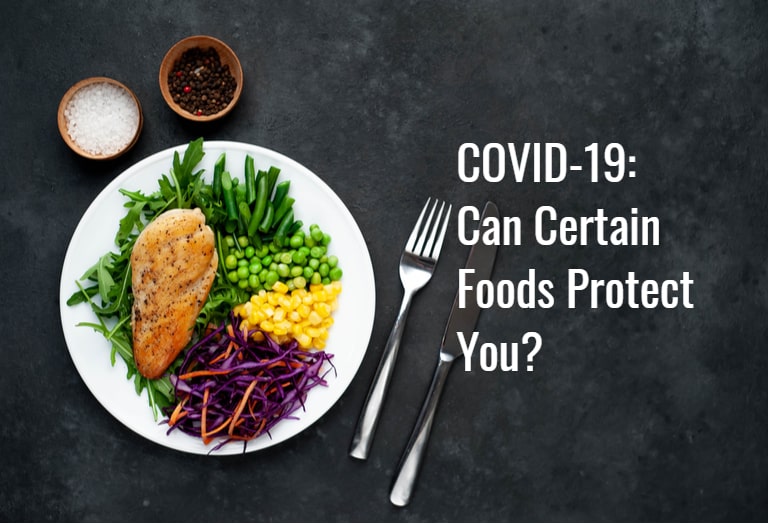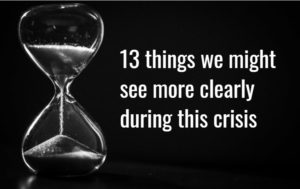By Gary L. Wenk, Professor of Psychology, Neuroscience and Molecular Virology, Ohio State University
The pandemic has introduced me, and probably many others, to the wasteland of daytime television. They present a buffet of mental cotton candy and pseudoscience that advance sales and ignore fact. Their approach reminds me of a quote by the author of the Exorcist, William Peter Blatty, “The demon is a liar. He will lie to confuse us, but he will also mix lies with the truth…” The devil is clearly in charge of programming for daytime television. (I’m guessing that you knew that already.)
Humans, dogs, fish, and squirrels, actually every animal on the planet, are all driven by fear. It keeps us alive and drives us to avoid injury and disease caused by novel organisms, such as the coronavirus. Those of us who use masks and avoid getting too close to others are looking for even greater levels of protection from this invisible and potentially deadly virus. Your television is bringing hope; false or otherwise, it does not matter as long as it is entertaining and fits into our pre-conceived notions about how to remain healthy.
For example, we are all well aware that eating a diet full of vegetables and fruits will help us live longer and healthier. Because most of us do not follow that dietary advice, we are primed for this piece of inaccurate advice: eating specific foods will protect us from the coronavirus. It makes obvious sense to everyone; except that there is no evidence that it is true. There is simply no evidence that consuming any particular food or nutritional supplement can protect us from the coronavirus.
OK, is there any evidence that we can boost our body’s immune response to fight off the coronavirus? No. The reason is that our immune system doesn’t work that way. Eating a poor diet lacking in adequate levels of required nutrients, the typical Western diet, can only impair the function of your immune system. Eating a healthy diet, the Mediterranean or DASH diet, will only allow your immune system to function at its normal level of responsiveness. What you eat does not boost your immunity; it can only impair it.
In truth, the fact that you cannot boost your own immune system is a good thing: boosting your immunity is not ever a good idea. Usually, bad things happen when your immune system is boosted too far for too long. Common consequences of an overactive immune system are autoimmune diseases such as rheumatoid arthritis or lupus. A boosted immune system attacks both bad cells, the virus, and good cells, you. Boosting your immune system sounds appealing, as do so many ignorant suggestions by the popular media; however, your immune system does not work in a simplistic manner that they present to us.
The only way to fight a specific threat to our body is to engineer a smart weapon that targets the coronavirus; those are called vaccines. Vaccines alert your immune system to a specific invading organism. When a vaccine becomes available against the coronavirus, get vaccinated. Indeed, while we are on the topic, don’t be foolish about your health; get vaccinated against Chickenpox, tetanus, pertussis, Hepatitis A and B, Human papillomavirus, influenza, measles, mumps, rubella vaccine, and polio. The risks of vaccinations are very small compared with the health risks of the diseases they’re intended to prevent.
Gary L. Wenk is Professor of Psychology & Neuroscience & Molecular Virology, Immunology and Medical Genetics at the Ohio State University and Medical Center. He is the author of “Your Brain on Food” (3rd Edition, 2019, Oxford University Press)
References
Your Brain on Food, 3rd Edition, 2019 and The Brain: What Everyone Needs to Know, 2017 (Oxford University Press)
Note: The views expressed in this article are the author’s, and not the position of Intellectual Dose, or iDose (its online publication). This article is republished with direct permission.



